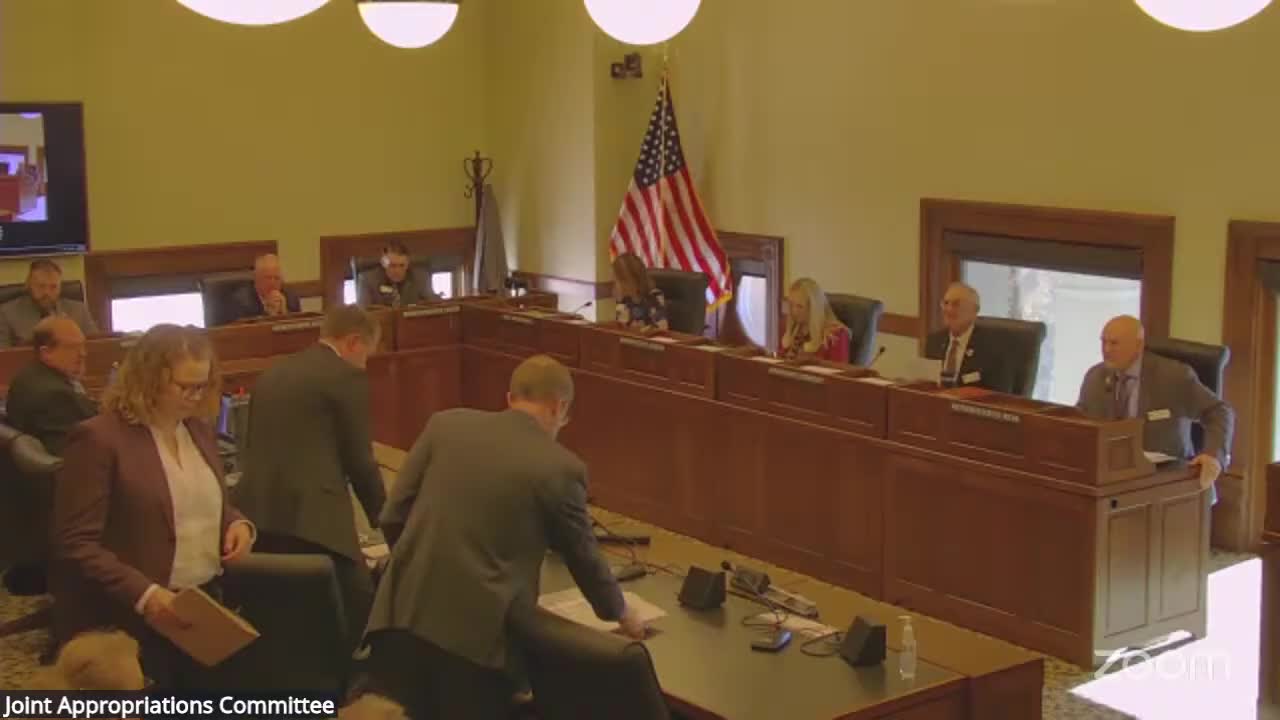Providers, guardians urge higher DD‑waiver rates and cost study as staffing shortages threaten services
Get AI-powered insights, summaries, and transcripts
Subscribe
Summary
Wyoming Department of Health officials told the Appropriations Committee their upcoming budget request for Developmental Disabilities waivers will blend extraordinary care funding, provider rate elements, and partial wait‑list funding, while providers and families urged larger rate increases and a funded cost study to stabilize staffing.
The Wyoming Department of Health told the Appropriations Committee it will submit a budget request that blends three elements discussed with the panel: funding for extraordinary care needs, some provider‑rate adjustments that reflect recent temporary increases tied to expired ARPA support, and partial funding targeted at the DD waiver wait list. Director Stefan Johansen said the department’s request will not attempt to extinguish the entire wait list but will aim to fund components of the list and address emergent needs through the extraordinary care committee process.
Why it matters: Providers and families testified that workforce shortages and turnover are undermining service quality and client stability. The committee heard from direct support professionals (DSPs), provider executives and a parent/guardian who said wages for many DSPs are lower than retail or fast‑food jobs and that turnover forces overtime and reduces continuity of care for vulnerable clients.
Numbers and program status: Jesse Springer, interim state Medicaid agent, reported the comprehensive waiver served 1,701 people, the supports waiver served 1,244, and 425 individuals were on the wait list at the time of the hearing. The department said it will consider targeted wait‑list funding but expects continued pressure unless provider rates and staffing conditions improve.
Provider testimony: Multiple front‑line workers and managers described the work as complex and emotionally demanding and urged funding the recently recommended cost study and rate adjustments. Sean McCastro, a provider director, described the role of a DSP: “I’m a teacher, a nurse, a coach, a counselor, and sometimes the only person they trust,” he said, and added that “our wages are determined by the Medicaid reimbursement the state sets for providers.” DSPs described long hours, required tasks that include medication administration and behavior supports, and the practical consequence that they often must work 50–60 hours per week to make ends meet.
Policy questions discussed: Committee members pressed the department on whether individuals on the wait list should receive a level‑of‑service assessment while waiting (the department currently performs financial eligibility and an institutional level‑of‑care screen but does not assign a detailed budgeted level for each waiting applicant). The department warned that assessments can age while an applicant waits and that assigning an assessment without available slots may create difficult expectations for families.
Program integrity and oversight: The department emphasized multiple safeguards — independent case managers, prior authorization checks, a program integrity unit, new data and fraud‑analysis tools, and an electronic visit verification requirement for personal‑care services — and said referrals for suspected fraud are escalated to the Attorney General’s Medicaid fraud control unit when warranted.
What lawmakers asked for: Committee members requested more detailed provider financial data, options to prioritize level‑6 (high‑need) applicants, and modeling of the cost and likely outcomes of funding varying portions of the wait list. Several committee members emphasized they prefer to find offsets and tradeoffs within the overall budget rather than make standalone directives outside the budget process.
Public comment highlights: Providers and family members urged funding the full $24 million cost study recommended by providers to establish a permanent rate structure. A parent of a waiver participant described how shared staffing arrangements made community housing and employment possible for her adult son and warned that closing providers or failing to raise rates could force residents back into larger group facilities or compromise employment. Testifiers urged the committee to weigh stability for current participants and fair wages for DSPs when developing budget priorities.
Next steps: Department staff said detailed budget proposals will arrive with the governor’s November submission and that the committee’s subcommittee on Health budget will receive additional fiscal detail. Lawmakers asked the department to produce more data on provider margins, staffing levels, and possible mechanisms to prioritize high‑acuity applicants.
